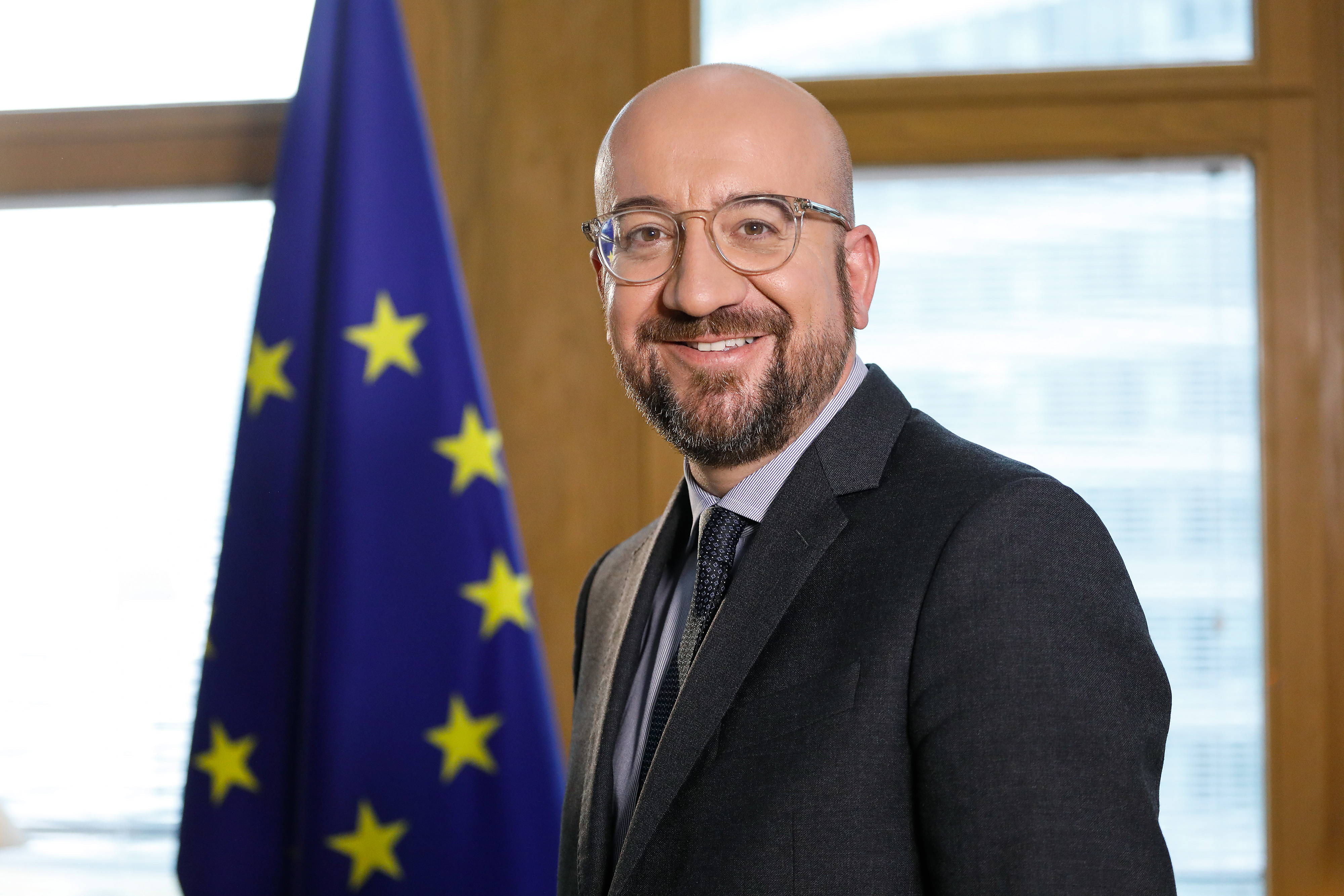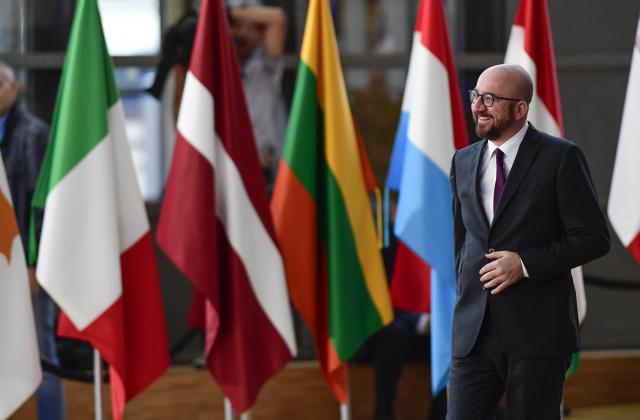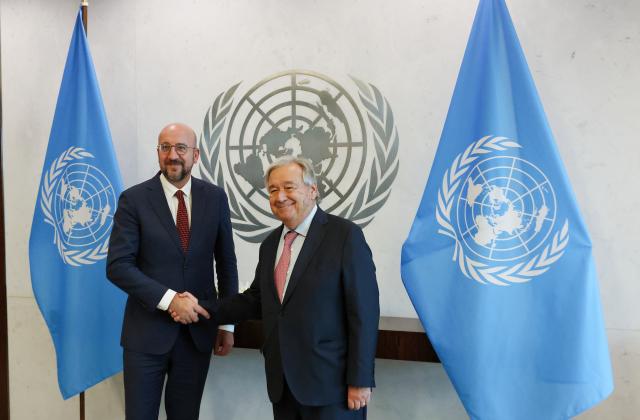
By Dr. Martha Theodorou
The European Council is the highest political entity of the European Union (EU). It consists of the Heads of State or Government of the Member States, the President of the European Council and the President of the European Commission. Together, they determine the EU’s political direction and priorities in both the short term and the long term, thereby setting the political agenda.
The President of the European Council chairs it, drives forward its work and ensures the external representation of the European Union on issues concerning its common foreign and security policy.
On 2 July 2019, EU leaders elected Charles Michel, Prime Minister of Belgium, as President of the European Council.
On 24 March 2022, EU leaders re-elected Charles Michel as President of the European Council.
In his exclusive interview to Dr. Martha Theodorou, Head of International and Public Relations of the Economic and Social Council of Greece, the President of the European Council presents the priorities of the European Union in the context of the Strategic Agenda 2024-2029, emphasizes the need to make the Union more competitive by pushing forward the completion of the Capital Markets Union, defines European sovereignty, refers to the crucial role of EU defense industry, and expresses the belief that a powerful, prosperous and democratic Union is inextricably linked to the Rule of Law and Europe's principles and values.
In the last Special European Council Meeting, you discussed the issues of competitiveness and investment in the European Union (EU). In your opinion, in which ways the EU today could strengthen more efficiently its economy, in order to ensure a decent life and the prosperity of all of its citizens?
We need to respond decisively to the big challenges of our times. That is why in recent years we have focused on taking bold action to tackle climate change, address the digital revolution of our societies, beef up our defence and security, and of course build strong and competitive economies.
Strong economies are a crucial foundation for achieving our collective goals. All EU leaders agree that one key step is to deepen the single market. History has proven that the single market is the backbone of our prosperity and competitiveness. Over the past 30 years, the single market and its four freedoms have been a powerful engine of convergence and growth across the EU. It has helped us to build a highly competitive social market economy, along with greater economic, social, and territorial cohesion.
We have the largest single market in the world, including high product, labour and environmental standards. But our single market still has a great deal of untapped potential. We must therefore deepen our single market to maximise this potential and boost our competitiveness. It is key, for instance, to build a genuine energy Union. This will help our Union reduce our dependencies on energy imports and provide more security, more choice and lower prices for our citizens.
In today’s hypercompetitive world, we need to unleash the European spirit of entrepreneurship. Europe is a continent of doers, makers and innovators. To achieve our goals, we need a crucial catalyst: investment. By investing in key strategic sectors we will unleash the huge potential of the single market. We must complete our capital markets union to unlock private capital. The economic case for a Capital Markets Union is crystal clear. Every year EUR 300 billion of European savings are diverted abroad, mainly to the United States. That is money missing for developing our companies in the European Union. It is also due to the fragmentation of our capital markets and finance system. Therefore, completing the Capital Markets Union is a clear priority in the European Council moving forward.
You characterised the European Union as an economic, scientific, innovative and cultural giant, mentioning that future enlargements and more sovereignty will make it even more so. How would you define European sovereignty? And how would you evaluate the readiness and the ability of the EU to welcome new members to the European family?
More influence, more resilience, less dependence. That is how I define European sovereignty. It is important to highlight that more European sovereignty does not mean less national sovereignty; on the contrary, it strengthen nations' ability to act.
As we move forward to a multipolar world, it is vital to increase the European Union’s clout as one of the world’s major blocs. Yes, the EU is an economic, scientific, innovative and cultural giant but this doesn’t mean we can’t get stronger, more influential, and more prosperous. Enlargement is a cornerstone of our strategic sovereignty. It is an investment in peace, prosperity and security.
We must be ready by 2030 - on both sides - to enlarge. For candidate countries, this means making the necessary reforms and solving all bilateral disputes. For the EU, it means reforming our programmes and budgets, and our decision-making.
In view of the “Granada Declaration” and the recent discussions about the Strategic Agenda 2024-2029, which should be the political priorities of the EU in the near future?
During my consultations with EU leaders for the Strategic Agenda 2024-2029, it became evident that all leaders want to continue working towards a strong, prosperous and democratic Europe. This translates into three main ideas.
First, a strong and secure Europe, prioritising Europe’s sovereignty and place as a global player in the new geopolitical context. This entails beefing up our defence readiness and strengthening our defence capacities, for instance, by improving the conditions for scaling up the European defence industry.
This is not a theoretical discussion. Two and a half years on from the start of Russia’s war against Ukraine, it is clear that Russia will not stop in Ukraine, just as it did not stop in Crimea ten years ago. Russia continues its destabilising tactics - in Moldova, Georgia, the South Caucasus, the Western Balkans and even further afield on the African continent. Russia is a serious military threat to our European continent and global security. If we do not give Ukraine enough support to stop Russia, we will be next. We must therefore be defence-ready and shift to a ‘war economy’. It is time to take more responsibility for our security.
Second, we must build a prosperous and competitive Europe. Completing the single market and succeeding in the twin green and digital transition will be key, as well as ensuring that no one is left behind. We must reduce the administrative burden on our companies and trust our entrepreneurs to capitalise on opportunities that will spur investment. It is also vital to invest in people's skills and education throughout life to provide opportunities for all.
Third, a free and democratic Europe where upholding the rule of law remains the cornerstone of our values and actions. Values will remain our guiding compass, both internally and externally. They are the foundation for a stronger, more prosperous, and more democratic Union for our people.
Recently, the European Union (EU) faced many crises; in your opinion, were they handled efficiently by its political institutions? Moreover, in this rapidly changing world, how will the EU protect its core values and principles, the rule of law, and its democratic institutions?
Citizens expect a lot from the EU and its leaders. And rightly so. We must therefore deliver on the most pressing challenges: security, peace, improving the conditions of life, economic growth, competitiveness and social cohesion. We have achieved a lot in recent years, while addressing unprecedented crises — from Covid-19, the energy crisis, and inflation to Russia’s war against Ukraine and the conflict in the Middle East. We have acted in unity and solidarity and achieved results, while staying true to our European values and principles.
The EU will protect its values and the Union turning the EU into a competitive single market, a hub for innovation, underpinned by prosperous and advanced economies. Our values will also be strengthened by building a strong and secure Europe that protects its citizens, including ramping up our defence industry. We now need to bolster our defence and security industrial base with our partners. A stronger European Union makes our alliances and partnerships stronger. Lastly, we are working to reinforce our core values by strengthening our role and voice in the world to have more influence.

